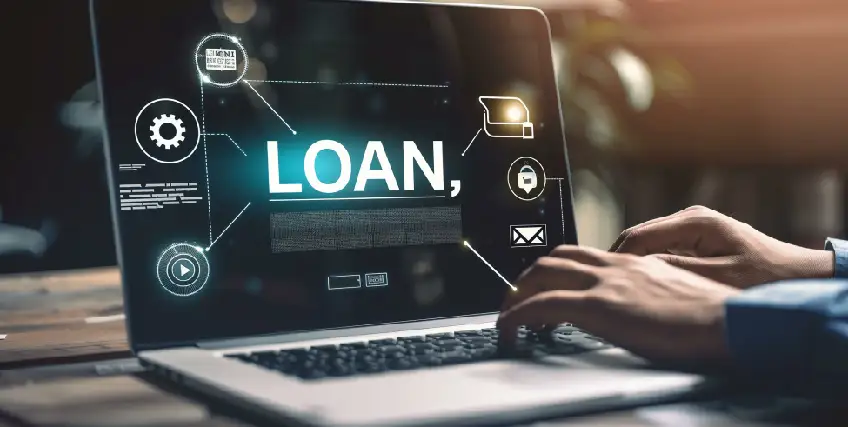Different Ways to Borrow Unsecured Business Loans After Retirement
February 19, 2025 | Last Updated on: February 19, 2025

If you’ve spent your life working for somebody else, retirement may present the opportunity to build your dream business and spend your golden years doing work you love and believe in. However, new business owners sometimes struggle to find startup capital in the best of times. In retirement, it may be even more challenging since you’re living on a fixed income.
Finding an unsecured startup business loan is important when you don’t have business assets to serve as collateral. Fortunately, there are many unsecured business loan lenders and loan products on the market.
In this article:
- The challenges of funding a new business after retirement.
- How to find business loans from unsecured business loan lenders in retirement.
- Types of unsecured loans available from unsecured business loan lender
What are unsecured loans?
Small business loans are either secured or unsecured. Secured loans have a form of collateral attached that a lender may seize if a borrower defaults on the loan. Collateral is usually a business asset like equipment, real estate, or inventory.
An unsecured loan does not require collateral. That doesn’t mean it’s risk-free, though. Unsecured business loan lenders still require you to provide a personal guarantee, which means that if the business can’t repay the loan, the lender may require you to repay it through your personal assets.
While unsecured loans can be risky for individuals living on a fixed income in retirement, it may be a better solution if you don’t have any business assets to use as collateral, especially when you’re just getting started.
Should you use retirement funds to start a business?
While you can use your retirement funds from an IRA or 401(k), it’s usually not a good idea. For one thing, you’ll typically have to pay taxes on any withdrawals you make. If you’re under 59 1/2, you’ll also pay early withdrawal penalties that reduce the actual amount you have to invest in your business. (Although Roth IRAs allow you to withdraw contributions — not earnings — tax- and penalty-free.)
In addition to the tax penalties, there are other risks:
- If the business is not successful, you’ll still be on the hook to repay the loan from your personal assets and fixed income.
- You may exhaust your retirement savings trying to start a new business, derailing future plans.
For most aspiring business owners, it’s better to explore loan options than fund a new business venture from retirement funds. Unsecured business loan lenders typically have higher interest rates than secured loans, but you won’t deplete your retirement savings upfront or have to put up your limited business assets as collateral.
Small business loan as a financing option
Business loans are not risk-free. There are still personal liabilities when getting an unsecured business loan and it’s absolutely essential that you never borrow a loan amount that’s more than you can afford to pay back. If your monthly payments are too high, it can lead to cash flow and working capital issues throughout your business and complicate your success.
All of that said, the goal of a loan is to give you the upfront capital you need to establish your business and start generating a profit. An unsecured startup business loan can support your startup costs, your daily business needs, and give you some financial flexibility to invest in growth.
There are many unsecured business loan lenders and types of loans that can support different business purposes. Loans help build your business credit, which may qualify you for better interest rates and loan terms later. Moreover, when you work with a lender, you have more options to refinance or adjust loan terms if you’re struggling to meet repayment terms. With your retirement savings, you’re just drawing from a finite amount of capital.
Types of unsecured business loans
Both traditional and online lenders may function as unsecured business loan lenders. Generally speaking, unsecured loans have higher interest rates and shorter repayment terms than secured loans, but they offer faster funding times because there’s no collateral appraisal.
In retirement, you’ll have access to the same loans that you would if you were to start a new business while in your working prime. Loan approvals and interest rates will still be based on your creditworthiness, business plan, and financial disclosures. However, the application process for certain loan options may be a bit different if you’re no longer in the workforce.
Here, we explore some of the best unsecured startup business loans after retirement.
401(k) loan
Financing a business with your retirement funds may not be advisable, but some retirees may have one unique funding option.
Depending on your plan administrator, you may be able to borrow against your vested retirement account balance. These loans function like equity loans, giving you access to wealth you’ve earned without forcing you to pay the taxes and fees that come with making a withdrawal. Terms vary, but usually, you’ll have to make quarterly interval payments to your plan provider plus interest.
This is one option that most unsecured business loan lenders can’t offer but might be available from your plan provider. There are penalties and costs depending on factors like your age, so check IRS rules before pursuing this option.
Term loans
One of the most common forms of business financing, with a term loan, a lender deposits a lump sum in your business bank account that you must repay, plus interest, over a specified term. Term loans may be both secured or unsecured depending on a lender’s requirements and your specific situation.
Most lenders have fairly strict eligibility requirements for term loans, including minimum credit scores, time in business, and annual revenues. This makes them less ideal as startup loans, especially if your personal credit score is just okay. If you’re living on a fixed income in retirement, you’ll likely have to make a significant down payment or provide great collateral to get a startup term loan.
If you have the personal funds to get started, a term loan is a good resource for investing in growth. With a great loan application, unsecured business loan lenders can help you hire employees, expand operations, purchase inventory, and address many other business needs.
SBA loans
The U.S. Small Business Administration (SBA) works with approved lenders to offer several competitive loan programs. These loans are partially guaranteed by the SBA, reducing the risk of default to both the borrower and the lender. However, because of that guarantee and the competitive terms of SBA loans, they have very strict qualification requirements.
Like term loans, the high qualification requirements make SBA loans difficult to get as startup loans, especially if you don’t have any collateral. However, if you have strong personal financials, a down payment, and a smart business plan, unsecured business loan lenders may be willing to approve your application.
Business lines of credit
One of the most common types of unsecured funding is a business line of credit. Unsecured lines of credit are accessible to almost any business, and give you access to a maximum credit limit from which you can draw when you need capital. Rather than pay interest on the full loan amount, you only pay on what you use, making it a more flexible and often less expensive option than term loans.
Most lines of credit are revolving, meaning that once you repay what’s owed, you’ll have access to the full loan amount again.
Business lines of credit are useful for short-term business funding and as a financial safety net when you encounter unexpected expenses. Many unsecured business loan lenders offer lines of credit, and they can be excellent resources for small business owners with bad credit or who have yet to establish a business credit score.
Business credit cards
Business credit cards work just like personal ones. You can make purchases with the card and pay them back later without providing any collateral. Although credit cards tend to have high interest rates, as long as you make minimum monthly payments or pay off your statement balance, you can avoid interest assessments. Credit cards are good for regular expenses like utilities, office supplies, and travel.
Invoice factoring and financing
If you have unpaid invoices and need cash fast, you can turn them into cash via invoice factoring and financing. These funding options allow you to effectively sell your invoices to either secured or unsecured business loan lenders.
In invoice factoring, an invoice financing company pays you cash upfront (minus a fee) and assumes the responsibility of collecting the unpaid invoice from the customer. This is an unsecured loan.
Invoice financing uses unpaid invoices as collateral to secure an upfront loan. While you get access to fast cash flow, you must pay the factoring company the loan principal, plus an additional fee once the invoices are paid.
Final thoughts
Getting an unsecured business loan when you’re starting a new business in retirement may be challenging, but it’s not impossible. You’ll need an excellent business plan and some patience to explore the many unsecured startup business loan products on the market. Being able to make a down payment and provide a personal guarantee may also improve your chances of getting approved by an unsecured business loan lender.
They may be tougher to access, but getting a business loan is usually safer than cashing out your retirement savings to start a business. If your vision is clear and your idea’s a profitable one, you’ll find a lender willing to work with you.
FAQs about unsecured business loan lenders
What is an unsecured business loan?
An unsecured loan is one that does not require collateral. You’ll likely still have to provide a personal guarantee that makes you personally liable in the event that your business can’t repay the loan, but you won’t risk forfeiting any specific collateral.
Can I cash out my retirement funds to start a business?
Yes, you can withdraw from your retirement accounts’ vest balances, but you’ll likely have to pay taxes and penalty fees to do so. It depends on your age and your plan administrator’s rules. In some cases, you may also be able to take a loan against your vested balance to avoid withdrawal penalties.
What are some unsecured business loan options?
Unsecured business loan lenders offer a variety of loan products, including unsecured term loans, SBA loans, unsecured business lines of credit, and business credit cards. Some alternative unsecured financing options include merchant cash advances and invoice factoring.
How do I get an unsecured business loan?
To get an unsecured small business loan, you’ll likely need to meet some strict eligibility requirements. Most unsecured business loan lenders require good credit, strong annual revenues, and a certain amount of time in business.
However, with a great business plan and excellent personal creditworthiness, you could still qualify for unsecured loan offers. If you’re unable or unwilling to put up collateral for a loan, you’ll likely have to accept higher interest rates and shorter repayment terms.
How do I apply for a loan?
To apply for a loan, you’ll need to provide documentation about your business, as well as tax returns and financial statements. Once you have everything ready, many lenders today allow you to apply online.




